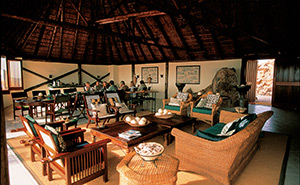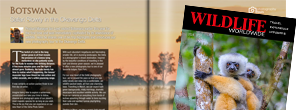African Safari Holidays

We’re often asked what safari holidays are like so we thought we would put together and short, but reasonably definitive guide…
A typical day on safari
 One of the most magical moments in the African bush is that moment before dawn, when the air is still cool, the birds and monkeys quiet and the primal calls of the night predators suggest that they have had a successful night’s hunt. You awake eager with anticipation of the day ahead! Although some lodges and camps now cater to those who wish to make a later start, serious wildlife enthusiasts are aware that on safari the early bird catches the worm! For it is now that the bush is most alive. The birds begin to wake as the first rays of sun hit the tops of the acacia trees, the browsers and grazers are lively before the heat of the day causes them to seek shade, and the predators are still active.
One of the most magical moments in the African bush is that moment before dawn, when the air is still cool, the birds and monkeys quiet and the primal calls of the night predators suggest that they have had a successful night’s hunt. You awake eager with anticipation of the day ahead! Although some lodges and camps now cater to those who wish to make a later start, serious wildlife enthusiasts are aware that on safari the early bird catches the worm! For it is now that the bush is most alive. The birds begin to wake as the first rays of sun hit the tops of the acacia trees, the browsers and grazers are lively before the heat of the day causes them to seek shade, and the predators are still active.
It is now that you are most likely to round a corner to find a pride of lions feasting on a carcass, or vultures and hyenas squabbling over the scraps. Leopards and many other nocturnal animals are often still about, later seeking shade and sleep as the sun rises. By mid-morning the heat has risen and game-viewing becomes harder, with the animals resting up under stands of trees, scrub and rocks. People return to camp to do the same – eat, snooze and relax by the pool.
Setting out again you notice the change in the animals as sunset approaches. Cooler air wakes the predators who, hungry once again, begin to prowl, and their prey becomes increasingly anxious as dusk falls. Once again, it is the twilight hours that promise great game-viewing as the early evening half light confuses prey and aids the predators’ keen senses.
Most parks do not permit night drives, but many camps and lodges are located in their own private concession areas where you can experience the thrill of the bush at night, hunting for eyes with spotlights and greatly raising the chances of viewing nocturnal hunters. Return to drinks around the campfire where tall tales are told and the day’s adventures shared before a hearty meal.
Where to stay – a tented camp, lodge or hotel?
Your choice of accommodation depends on what sort of safari experience you wish to have. Do you dream of breakfasting under acacia trees with crisp white table linen and silverservice and sleeping under luxurious canvas in true ‘Out of Africa’ style? If so, then a luxury tented camp is the answer and they are found all over Africa. This level of service comes at a price, but the small scale of these camps and superb levels of attention make this a truly personal, once-in-a-lifetime experience.
 If the thought of tents (no matter how luxurious) makes you nervous, then consider a lodge with private cottages. Some reserves offer hotel-style accommodation – particularly in Kenya and Tanzania which is often more suitable for families and those on a budget. Namibia also provides budget self-catering accommodation in many of the parks. But remember a shorter experience in a top lodge can easily surpass a much longer experience in a larger establishment.
If the thought of tents (no matter how luxurious) makes you nervous, then consider a lodge with private cottages. Some reserves offer hotel-style accommodation – particularly in Kenya and Tanzania which is often more suitable for families and those on a budget. Namibia also provides budget self-catering accommodation in many of the parks. But remember a shorter experience in a top lodge can easily surpass a much longer experience in a larger establishment.
How to view wildlife – guides and vehicles
 The single most important aspect of your trip will be the quality of your guide as they will be finding the animals for you. A good guide should also be able to answer any questions about each animal’s habits and lifecycle. The best camps and lodges train up their own guides – with the camps in southern Africa producing some of the world’s best wildlife guides.
The single most important aspect of your trip will be the quality of your guide as they will be finding the animals for you. A good guide should also be able to answer any questions about each animal’s habits and lifecycle. The best camps and lodges train up their own guides – with the camps in southern Africa producing some of the world’s best wildlife guides.
Most commonly game-viewing is enjoyed by 4-wheel drive vehicle, but walking safaris are becoming increasingly popular. To walk in the bush is a wonderful experience as you are able to enjoy the wildlife at eye level. It can of course also be an adrenalin inducing experience… Boat and horseback are also excellent ways to view animals. For some reason animals are less intimidated by humans on horseback. It enables some magnificent encounters, riding through herds of wildlife and the speed of the horse makes it slightly less intimidating than being on foot. Botswana offers some exceptional riding safaris as does Kenya
Boating is often overlooked, but enables you to approach animals along the riverbank at close quarters, which is of particular advantage to photographers. Highlights include traditional mokoro canoes in the Okavango Delta, and wildlife cruises on the Zambezi and Chobe Rivers.
Self-drive safaris are possible in southern Africa, notably Namibia where the infrastructure is good, but most visitors will choose to combine this with guided safaris in the parks or reserves in order to take advantage of local knowledge and experience.
Tailor-made safari holiday, just for you…
 Everyone has their own expectations and requirements which is why we work with you to tailor-make your own personal safaris. For some, this will be a once-in-a-lifetime experience, others will ‘catch the bug’ and return again and again. Some will want exclusivity and privacy, some will prefer to share their adventures with others. Safaris come in all shapes and sizes!
Everyone has their own expectations and requirements which is why we work with you to tailor-make your own personal safaris. For some, this will be a once-in-a-lifetime experience, others will ‘catch the bug’ and return again and again. Some will want exclusivity and privacy, some will prefer to share their adventures with others. Safaris come in all shapes and sizes!
We have outlined some of Africa’s top wildlife destinations and a handful of the top lodges and tented camps to get you started, but there are many more and if you want something different just ask. We will be happy to discuss the options with you at any time - we have spacious, conveniently located offices in central Winchester, we make great coffee, and we have lots of maps that we enjoy using to plan itineraries! Or if you prefer, you can drop us an email or give us a call.
Take a look at all our African wildlife holidays...








